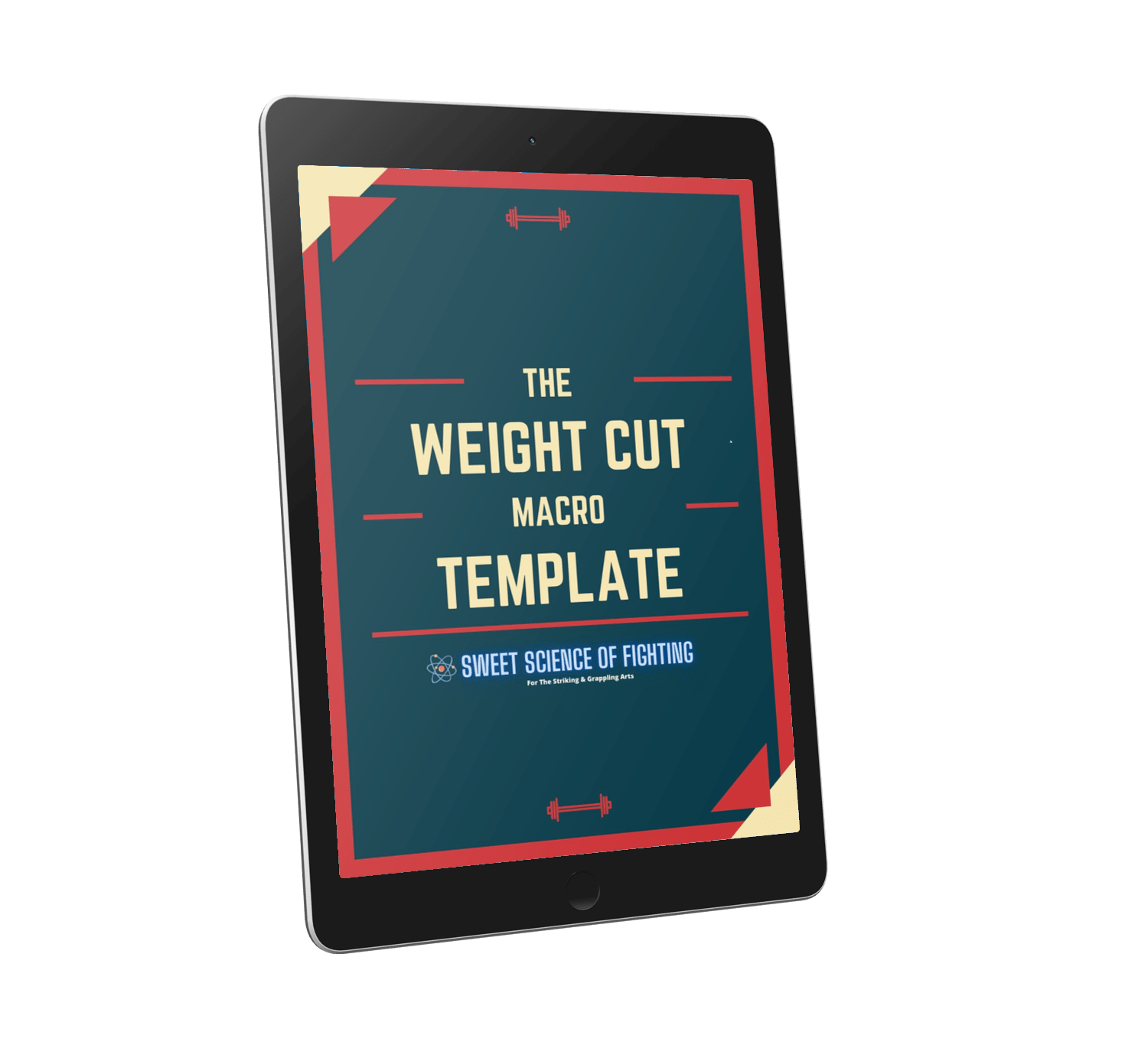Cutting weight is seen as a badge of honor in combat sports. How much weight can you lose to gain an advantage in a lower weight class? Unfortunately, it doesn’t work like that, and cutting extreme weight can have fatal consequences.
Cutting weight for BJJ should not involve acute weight-loss strategies. Instead, cutting weight should consist of a slow and steady decrease in bodyweight well before BJJ competition.
While it may seem hardcore to sit in the sauna the week of your BJJ competition, you can’t follow the same acute weight-cutting strategies that other combat sports do. Such as those presented in the “How To Cut Weight For A Fight” article. So, what should you do instead?
Should You Cut Weight For BJJ?
The first question to ask yourself is if you should even cut weight for your BJJ competition. These are some of the questions you should ask yourself:
- Are you carrying a lot of excess body fat?
- Are you a hobbyist who likes to compete, or are you trying to become elite in the sport of BJJ?
- How much time do you have until your competition?
- How far above your target weight class is your current body weight?
- Is the upcoming competition a significant event (World’s, Nationals) or a small local event?
- Have you cut weight before for a competition? How did you feel?
These are questions you need to answer before starting to restrict your diet or doing extra activity. Let’s run through each point.
Are You Carrying Excess Body Fat?
If you are overly fat, cutting weight for BJJ is probably a good idea. Having excess weight when rolling is like doing BJJ with a weighted vest. Every movement requires more energy or more force production from your muscles which cuts your BJJ cardio drastically.
Shedding unnecessary bodyweight is the easiest way to improve your conditioning without doing more cardio.
Hobbyist Or Aspiring Elite Competitor?
If you are of average body composition, you need to consider how seriously you take your BJJ. If you’re a hobbyist who likes to compete, cutting weight isn’t necessary and may be more of a hindrance than helpful as it disrupts your daily life with your family and friends.
But if you are an aspiring competitor looking to take over the BJJ world, then getting leaner to improve your performance makes sense and should be something you implement into your BJJ preparation.
Time Until Competition
If you’re a few weeks out from competition and suddenly decide you want to drop a weight class, don’t. It’s too late. Dropping a weight class must be planned well in advance depending on your current bodyweight; otherwise, you risk destroying your competition day performance.

FREE Weight Cut Template That Automatically Calculates Your Macros
Your Current Bodyweight
Along with time, you need to consider your current bodyweight. Let’s say, for example, you are 90 kg (approx. 198 lbs) and want to cut down to the medium heavy division under IBJJF rules at 85.5 kg (188.5 lbs).
Because we want a slow reduction in bodyweight to maintain as much muscle mass as possible and, therefore, performance, we’d want a 0.5-1 lb (0.25-0.5 kg) reduction per week on average. That’s at least 10 weeks of dieting.
If your bodyweight is closer to the medium heavy weight class (e.g., 192 lbs), you don’t need to start so close to the competition.
Seriousness Of The Competition
If this upcoming competition is serious, doing anything new is a bad idea. Compete at the weight you always compete. Continue to train and roll at the weight you typically train. However, if this is an in-house competition or a small local comp, experiment away!
Have You Cut Weight Before?
Is this something you regularly do for competition? If not, you may want to try it for a smaller competition. If it’s something you do regularly and have experience with, then do as you typically do. If you’ve cut weight before and felt horrible, you need to reassess your weight cutting strategy with the method I’m about to share below.
How To Cut Weight For BJJ With Same Day Weigh In?

Cutting weight for BJJ with a same-day or before-mat weigh-in is an entirely different beast to a fighter with a full 24 hours. You cannot use acute weight-loss strategies. That means no saunas, no extreme dehydration, and no severe reductions in food intake.
If you want to perform well at your BJJ competition, you can’t be doing these things. By the time you weigh in mat side and get on the mats for your first fight, you may have up to 30 minutes between if you’re lucky.
My advice from experience is to get to your weight class weight well before the competition. I mean 1-3 weeks before. This allows you to maintain your new bodyweight easily and train at your new bodyweight.
You get to feel how much faster, and agile you are and how much bigger your gas tank is. So, how do you get to a lower weight class? I’ve detailed everything in my weight loss BJJ diet article, which I will reiterate below.
Calories
First, you must find your maintenance daily caloric intake. This is the calorie intake that maintains your bodyweight. There are two ways to do this:
- Track your calories for 7 days in a row and take an average. As your weight is likely to remain constant, this average will represent your maintenance calories.
- Take your bodyweight in pounds and multiply it by 15. This will estimate your maintenance calories.
Either approach works. Once you have calculated your maintenance calories, it’s time to create a caloric deficit.
I recommend starting with a 200-300 calorie deficit. Weigh yourself every morning after going to the toilet before eating or drinking anything. Keep track of this morning weight. If it does not budge, you can take a more significant deficit.
Macronutrients
Next is to calculate your macronutrient intake. Here is what I recommend from experience and working with many athletes:
- Protein – 1 g per pound of body weight (2.2 g per kg)
- Fats – 25% of total calories
- Carbs – Whatever is left over.
For reference, protein and carbohydrates have 4 calories per 1 g, whereas fats are 9 calories per 1 g. Let’s use our example of a 90 kg (198 lb) BJJ practitioner.
- Maintenance calories = 198 x 15 = 2970 cals.
- Deficit calories = 2700 cals.
Protein = 198 g (792 cals)
Fat = 2700 x 0.25 = 675 cals. 675/9 = 60 g
Carbs = 2700 – (792 + 675) = 1233 cals. 1233/4 = 308 g
In the end, we come out to macros below:
Protein = 198 g
Carbs = 308 g
Fats = 60 g
This is the daily macronutrient intake to start your weight cut. Now, you don’t need to be so strict that you must hit these numbers exactly. Give yourself some leeway by being in a range of ± 10 g for protein and carbs and ± 5 g for fats.
Once you see your weight plateau for a few days, you can remove 100 calories from mainly carbohydrates to continue your weight cut.
Summary
Weight cutting for BJJ is much different from the typical 24-hour weigh-in seen in other combat sports. Mat side weigh-ins prevent acute weight loss strategies where you could rehydrate, so using them to make weight in BJJ is a bad idea. Stick to dieting and bringing your weight down far before your competition so you can train at your new bodyweight.

